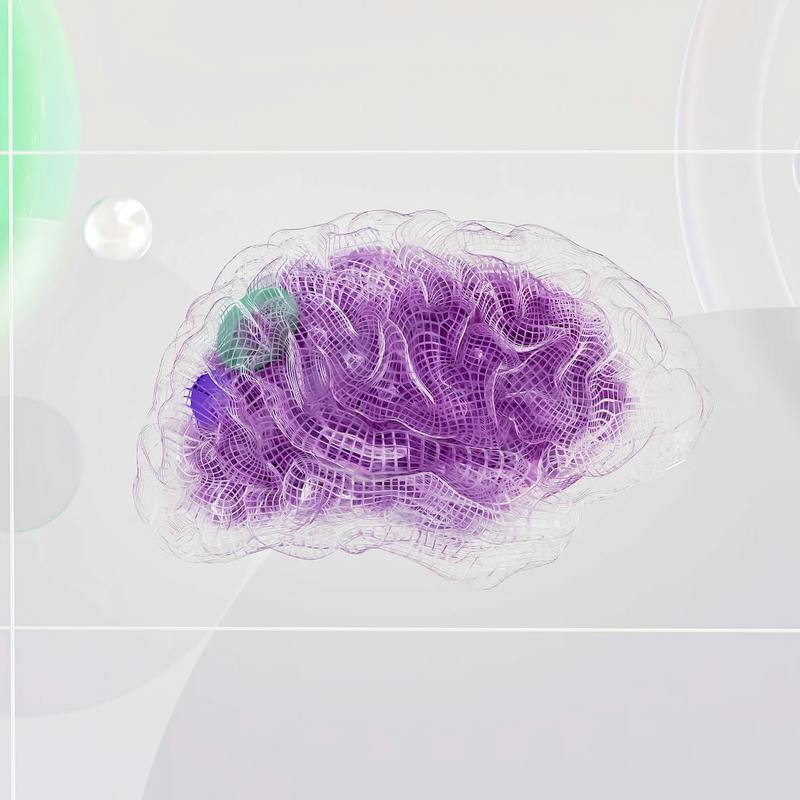Search
Understanding Social Behavior and Dynamics of Four-horned Antelope in Captivity
DOI: 10.17160/josha.11.5.999
The Four-horned Antelope, a typically shy, elusive, and solitary species, is found throughout India, excluding the coastal regions, and is housed in 26 zoos across the country. Despite this, there is a scarcity of studies on their social behavior, leading to a knowledge gap in conservation strategies and captive breeding program management. Our study, conducted at Sardar Patel Zoological Park, focused on the social behaviors and group composition of 14 Four-horned Antelopes (1 male, 7 females, 6 fawns) housed in a mixed-herbivore enclosure with Spotted Deer, Thamin Deer, Barking Deer, and Himalayan Goral. Contrary to their natural solitary behavior, our findings suggest that in captivity, Four horned Antelopes prefer to stay in groups and exhibit social behaviors.We observed daily activity patterns among the Four-horned Antelopes and found significant differences in the activities of males and females.
Editorial Volume 11, Issue 4
DOI: 10.17160/josha.11.4.997
Dear josha-journal readers, In this editorial, I would particularly like to recommend an article by Josha's editors, in which they emphasize the many opportunities the journal offers to publish qualified articles free of charge. This is especially true for global collaboration and knowledge sharing. The journal's mission is aligned with that of the Bill & Melinda Gates Foundation. Just as the Gates Foundation seeks to expand access to important research and its impact, JOSHA strives to make knowledge accessible to all, to foster collaboration, and to advance research for the benefit of society. In this context, the current issue of the journal features three articles by Usman Al-Amin, who takes an in-depth look at education in Nigeria, identifying problems and solutions. The other articles, ranging from cancer research to the treatment of anxiety disorders, are also highly recommended! Enjoy the read!
Dance through Traditional Rhythms: A Practice-as-Research Exploration of Colombian Rhythms Informing and Shaping Contemporary Dance
DOI: 10.17160/josha.11.4.996
This research employs a practice-as-research methodology to investigate ways to expand choreographic creativity through ‘Colombian traditional rhythms’ in dance improvisation practice. Drawing inspiration from Vida Midgelow’s approach (2020), the study adopts a reflective and reflexive method, emphasizing interdisciplinary collaboration and contextual awareness. The primary research inquiry focuses on uncovering new movement vocabulary and dynamics by enriching responses to rhythmic patterns. For this research, the rhythms that are being explored are Cumbia, Bullerengue, and Mapale. Furthermore, the researchers involved in the process delve into deconstruction, dialogue generation, and improvisation, culminating in the development of groove, creativity, and liberation. The analysis highlights the effectiveness of structured tasks in fostering collaboration, enjoyment, and the emergence of new movement vocabulary.
The Dysregulation of the Secretome in the Tumor Microenvironment: A Potential Source for Biomarker Discovery and Personalized Cancer Treatment
DOI: 10.17160/josha.11.3.991
The cancer secretome includes all proteins released by cancer cells and the components of the tumor microenvironment. Dysregulation of secretome emerged as a major contributor to cancer initiation and progression. Cancer cells and stromal cells communicate through different secretory pathways and work together to promote tumor growth. Understanding how this tumor-stroma crosstalk drives cancer development and studying changes in the secretome can help identify new biomarkers and therapeutic targets. Considering the challenges in diagnosing several cancer types in the early stages and providing personalized treatment, it is crucial to thoroughly study cancer processes and their key players to develop effective biomarkers and targeted treatments.
Reshaping the Academic Landscape: JOSHA’s Shared Vision with the Gates Foundation
DOI: 10.17160/josha.11.3.987
The dissemination of knowledge through scientific articles is undoubtedly essential in the field of science, yet the costs linked with publication fees in reputable journals may hinder less privileged groups. These disparities pose a widespread global challenge that affects science as well. Acknowledging this issue, organizations like the Bill & Melinda Gates Foundation and the United Nations have taken steps to address these challenges. The Bill & Melinda Gates Foundation promotes rapid and equitable sharing of breakthroughs through initiatives like the Open Access Policy. Meanwhile, the United Nations advocates for the Sustainable Development Goals (SDGs) which emphasize Quality Education and reducing inequalities. Just as the Gates Foundation seeks to expand access to crucial research and its impact, JOSHA strives to make knowledge accessible to everyone, encouraging collaboration and advancing research for the benefit of society.
Understanding Reproductive Strategies: Courtship and Copulation Behaviours of the Asiatic Wild Dog (Cuon alpinus) in Captivity
DOI: 10.17160/josha.11.3.986
This study offers an in-depth observation of the courtship and copulatory behaviors of the Asiatic wild dog (Cuon alpinus), also known as the dhole, within a captive environment at the Sardar Patel Zoological Park, Ekta Nagar, Gujarat. Characterized by unique vocalizations, distinct body postures, and specific initiation cues, the reproductive strategy of the dhole exhibits both complex communication and consensual mating processes. Our observations revealed notable behaviours such as mutual grooming, nuzzling, olfactory exploration, and specific tail positioning, which signify readiness and consent for mating. The study meticulously documents the mounting attempts, copulation frequency, duration, and post-copulatory affiliative behaviours, contributing valuable insights into the dhole’s reproductive behaviours.
Editorial Volume 11, Issue 3
DOI: 10.17160/josha.11.3.985
Dear josha-journal readers, In this issue, we recommend some important medical articles. Ana Caroline Colombo and Marcio L. Rodrigues study the fungus Cryptococcus neoformans, which can lead to brain infections and is estimated to cause 500,000 deaths each year. Their study suggests that much effort is needed to improve knowledge of how C. neoformans affects brain cells so that new therapeutic tools can be developed in the near future. Ketki Kelkar Ramanan writes about the misuse of laboratory reports in India and discusses the quality of health care. Ana Clara Solon Rufino's article on the positive impact of art classes on socially disadvantaged young people in Belém, Brazil, and Josha's critical review of a publication on the link between social media and anorexia, take a medical-social direction. There is much more in this issue, including articles on artificial intelligence, Oscar Wilde, and education in northern Nigeria. Enjoy the read!
EU Blue Book Traineeship Report
DOI: 10.17160/josha.11.3.984
The Blue Book traineeship program at the European Union Institutions offers valuable insight into the inner workings and decision-making processes of the European institutions. During my tenure at the Communication Unit of the Public Health and Food Safety Department (DG SANTE), I contributed to impactful communication strategies on public health issues, including mental health and cancer. Leveraging my medical background, I crafted scientifically backed messages for high-level events, such as the World Mental Health Day conference and Europe's Beating Cancer Plan. My experience at DG SANTE reinforced the importance of inclusive communication strategies in effecting positive change.
Fungal Colonization of the Brain: Anatomopathological Aspects of Neurological Cryptococcosis
DOI: 10.17160/josha.11.2.983
Brain infection by the fungus Cryptococcus neoformans results in an estimated 500,000 human deaths per annum. Colonization of the central nervous system (CNS) by C. neoformans causes different clinical syndromes that involve interaction of a number of fungal components with distinct brain cells. In this manuscript, our literature review confirmed the notion that the Cryptococcus field is expanding rapidly, but also suggested that studies on neuropathogenesis still represent a small fraction of basic research activity in the field. We therefore discussed anatomical and physiological aspects of the brain during infection by C. neoformans, in addition to mechanisms by which brain resident cells interact with the fungus. This review suggests that multiple efforts are necessary to improve the knowledge on how C. neoformans affects brain cells, in order to enable the generation of new therapeutic tools in the near future.
Verifying the Authenticity of Diagnostic Labs: Need of the Hour
DOI: 10.17160/josha.11.2.982
In my hematological practice, I have come across several cases of blood reports signed by technician-owned labs. Despite clear MCI (Medical Council of India) guidelines stating that DMLT technicians are not authorized to sign laboratory reports, this malpractice continues. The problem with such labs is that their reports are unreliable and may have been illegally modified for various motives and gains. These technician-run labs may either be self-signed or pathologist-signed. Such labs offer tests at lower prices at the cost of poor quality reporting. People do not mind getting their tests done at these labs as long as they get a good discount. Ideally, one must visit a lab which has a qualified pathologist available to answer patient queries, discuss reports and provide guidance. Today, we as a society are extremely cautious while making even simple lifestyle choices such as organic food, chemical-free products, etc.









